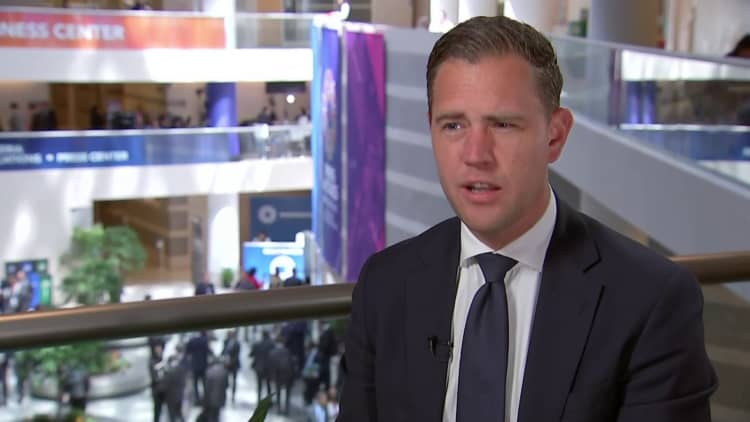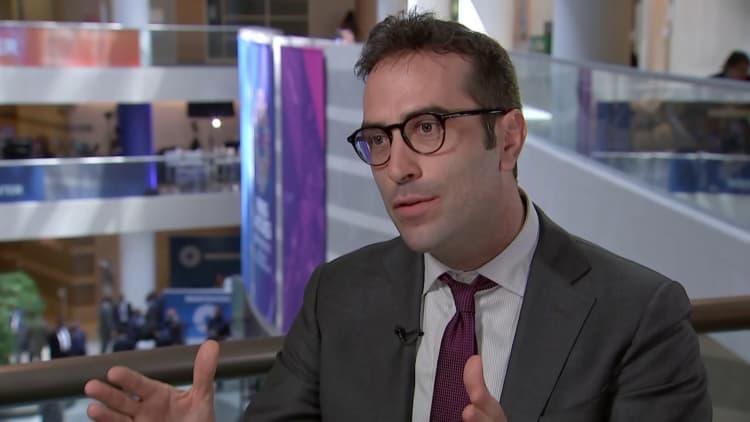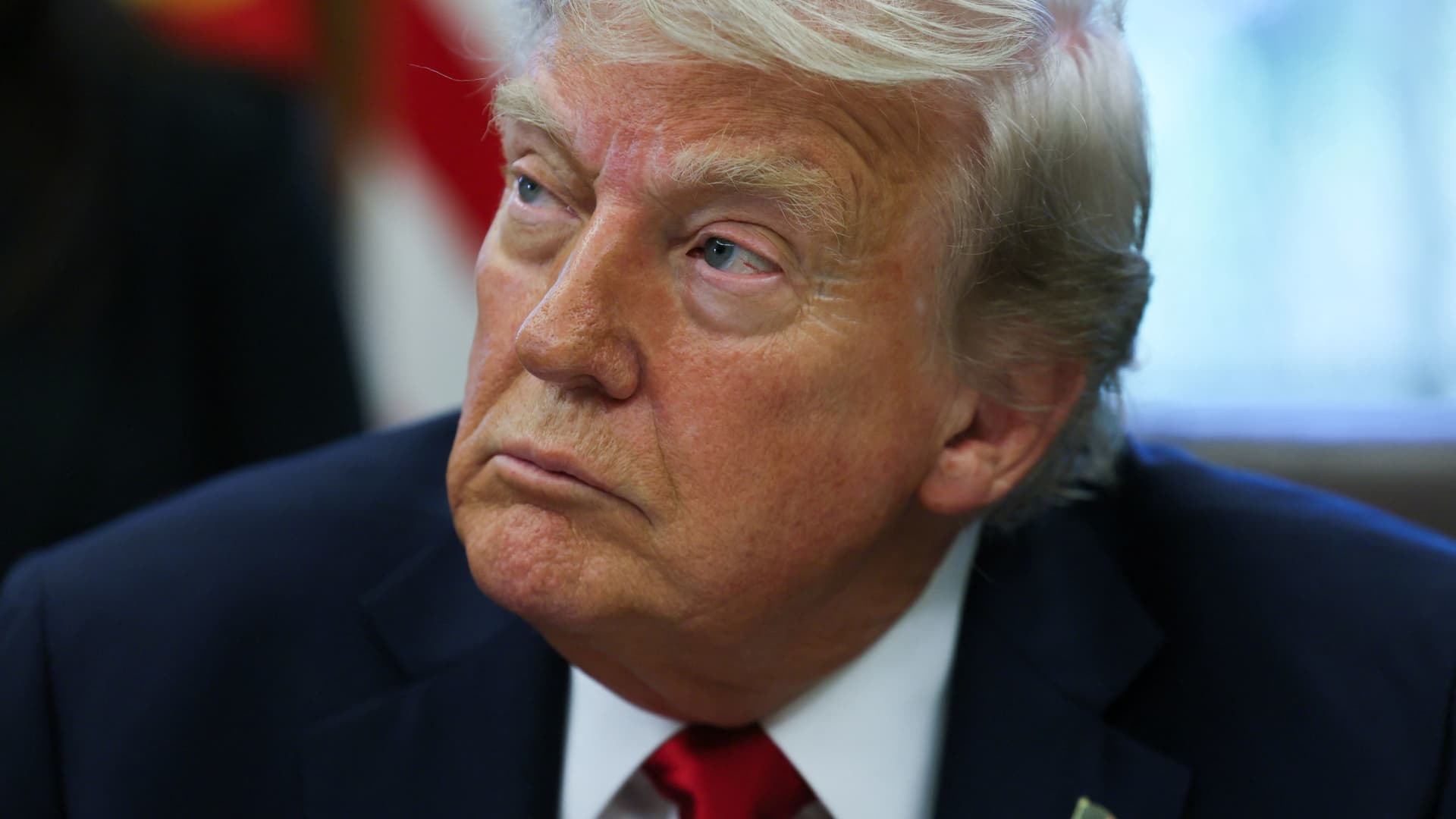Leah Millis | Reuters
“I do believe an agreement can be reached, but at the same time, I do know we have lots of work that we have to do in order to get to that point,” Pascal Donohoe, president of the Eurogroup and finance minister of Ireland, told CNBC on Wednesday.
“If we use the time ahead wisely, we can at least create a framework in which we can avoid measures being taken on both sides of the Atlantic that could harm ourselves, harm Europe and harm America,” he said on the sidelines of the International Monetary Fund and World Bank spring meetings in Washington.
Trump initially imposed a 20% “reciprocal” tariff on all goods coming from the EU but paused the measures for 90 days for negotiations, lowering the duty to 10% until that time. A 25% tariff on foreign cars and steel and aluminum imports remains in place.
The EU paused its retaliatory duty targeting 21 billion euros ($24.1 billion) worth of U.S. goods “to allow time and space for EU-U.S. negotiations,” the European Commission said.
Talks have not yet yielded any tangible compromises or results, European officials say, and the backdrop to discussions likely soured further on Wednesday after the EU fined U.S. tech behemoths Apple and Meta hundreds of millions of euros each for breaching the bloc’s digital competition laws.

The EU insists that its trade in goods and services with the U.S. is reasonably balanced. Data from the European Commission, the executive arm of the EU, said the bloc had a trade surplus of 155.8 billion euros ($176.7 billion) with the U.S. for goods in 2023, but ran a 104 billion euro deficit on services. Overall, EU-U.S. trade in goods and services in 2023 was worth 1.6 trillion euros, according to the EU.
Machinery and vehicles make up the largest chunk of EU exports to the U.S. by product group, followed by chemicals, other manufactured goods and medicinal and pharmaceutical products.
Spain’s Finance Minister Carlos Cuerpo told CNBC that any failure to reach a deal would be harmful for both Europe and the U.S., with more than 4 billion euros’ ($5.1 billion) worth of trade in goods and services a day at stake.
“We need to engage in an open and frank conversation amongst the two sides of the Atlantic, because there’s a lot to lose if we do not get into a fair and balanced agreement,” Cuerpo told CNBC’s Carolin Roth in Washington.
“There is this specific figure, of 4.5 billion euros on a daily basis across the Atlantic in terms of trade in goods and services — that’s a treasure that we need to protect,” he noted.
“It is [important] how we face these negotiations from the EU side, with an extended hand, to reach an agreement. But it has to be a fair agreement. Let’s not forget that under the current situation, most of the tariffs that were imposed by the U.S. administration are already in place and affecting our companies.”
Eelco Heinen, finance minister of the Netherlands, slammed tariffs as a taxation on goods that is “so bad for consumers” and would cause businesses to pause investment.
Major headwinds
On Tuesday, the IMF had warned that trade tariffs announced by President Donald Trump pose major headwinds for the U.S. and global economy in 2025.
In its April 2025 World Economic Outlook., the IMF forecast a U.S. growth outlook of 1.8% in 2025, down 0.9 percentage points from its January forecast. The fund also cut its global growth forecast to 2.8% this year, down 0.5 percentage points from its previous estimate.
The fund predicted a slight decline in the euro zone, forecasting that euro area GDP will hit 0.8% in 2025, before picking up modestly to 1.2% in 2026.
It singled out Spain as a bright spot in the region, stating its growth momentum “contrasts with the sluggish dynamics elsewhere,” with the Mediterranean nation expected to expand its economy by 2.5% this year following an upward revision of 0.2 percentage points from the forecast made in January.

“This reflects a large carryover from better-than-expected outturns in 2024 and reconstruction activity following floods,” the IMF said.
These were the fund’s “reference forecasts” for global economic growth and inflation, which is based on data available as of April 4 — including the U.S.’ “reciprocal” tariffs but excluding subsequent developments like the 90-day pause on higher rates.
— CNBC’s Hakyung Kim contributed reporting to this story
Foreign policy,United States,Economic events,Prices,Spain,Ireland,Donald Trump,business news
#European #officials #warn #work #needed #reach #trade #deal

